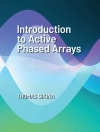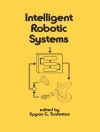This book is devoted to the optimum design of the DCT in a hybrid AC/DC microgrid, which takes into account not only the influence of different inductors/capacitors values, but also numerous design goals (i.e., VCG, efficiency, stability and so on). This book examines the DCT’s design problem in detail. It begins by reviewing existing DCTs in, the hybrid AC/DC microgrid and their design problems. Following that, this book proposes a family of DCT optimization design approaches to ensure that the designed DCT has good power transmission and voltage regulation ability in the hybrid AC/DC microgrid, even when the actual inductors/capacitors values fluctuate with practical power and temperature. Following that, this book provides a family of multi-objective optimization design methodologies for the DCT to guarantee that it concurrently achieves the requirements of VCG, efficiency, and system stability. This book also covers how to control the DCT in a hybrid AC/DC microgrid optimally and generically.
Inhaltsverzeichnis
Introduction.- The Proposed Robust Circuit Parameters Design for the CLLC-type DC Transformer in the Hybrid AC/DC Microgrid.- The Proposed Simplified Resonant Parameters Design of the Asymmetrical CLLC-type DC Transformer in the Renewable Energy System via Semi-artificial Intelligent Optimal Scheme.- The Proposed Two-stage Parameter Design Methodology of a Generalized Resonant DC Transformer in Hybrid AC/DC Microgrid with Optimum Active Power Transmission.- Design of Symmetrical CLLC Resonant DC Transformer Considering Voltage Transfer Ratio and Cascaded System Stability.- Parameter Design for Symmetrical CLLC-Type DC Transformer Considering Cascaded System Stability and Power Efficiency.- Design Methodology for Symmetric CLLC Resonant DC Transformer Considering Voltage Conversion Ratio, System Stability and Efficiency.- The Proposed Multi-Time Scale Frequency Regulation of a General Resonant DC Transformer in Hybrid AC/DC Microgrid.
Über den Autor
Xin Zhang received the Ph.D. degree in Automatic Control and Systems Engineering from the University of Sheffield, U.K., in 2016, and the Ph.D. degree in Electronic and Electrical Engineering from Nanjing University of Aeronautics & Astronautics, China, in 2014. From February 2014 to December 2016, he was Research Associate with the University of Sheffield. From January 2017 to September 2017, he was Postdoctoral Research Fellow at the City University of Hong Kong. From September 2017 to August 2020, he was Assistant Professor of Power Engineering with the School of Electrical and Electronic Engineering, Nanyang Technological University, Singapore. Currently, he is Full Professor at Zhejiang University. He is generally interested in power electronics, power systems, and advanced control theory, together with their applications in various sectors. He has received the Highly Prestigious Chinese National Award for Outstanding Students Aboard in 2016. He is Associate Editor of eight SCIjournals and transactions, such as IEEE TIE/JESTPE/OJPE Access and IET Power Electronics.
Miss. Fanfan Lin received bachelor’s degree in Power Engineering from Harbin Institute of Technology, China in 2018 and currently working toward the Ph.D. degree in Electrical and Electronic Engineering from Nanyang Technological University, Singapore. She is IEEE Student Member since 2018. She is interested in optimization design and artificial intelligent application of power converters.
Prof. Ma, Hao received the B.S., M.S., and Ph.D. degrees from Zhejiang University, Hangzhou, China, in 1991, 1994, and 1997, respectively, all in Electrical Engineering. Since 1997, he worked as Lecturer, Associate Professor, and Professor at Zhejiang University. Currently, he is Professor in the College of Electrical Engineering and served as Vice Dean of ZJU-UIUC Institute, Zhejiang University. His research interests include advanced control in power electronics, wireless power transfer, faultdiagnosis of power electronic circuits and systems, and application of power electronics. Prof. Ma served as Director of Academic Committee of China Power Supply Society, Vice President and Secretary-General of Power Supply Society of Zhejiang Province, Associate Editor of Journal of Power Electronics (JPE), Associate Editor of IEEE Journal of Emerging and Selected Topics in Power Electronics (JESTPE). He served as Vice Dean of College of Electrical Engineering, Zhejiang University (2013–2017), Ad Com Member of IEEE Industrial Electronics Society (2014–2015), Technical Program Chair of IEEE PEAC 2018 and IEEE PEAC 2014, Technical Program Chair of IEEE ISIE 2012, and served as Co-chair of Power Systems and Smart Grids, IEEE IECON 2018, Special Session Co-chair of IEEE IECON 2017, Co-chair of Power Electronics and Energy Conversion, IEEE IECON 2013, and Co-chair of Power Electronics and Renewable Energy Track, IEEE IECON 2010.
Professor Bin Zhao received the B. S. degree inelectrical engineering from Nanjing Agricultural University, Nanjing, China, in 2012, and the Ph.D. degree from Institute of Electronics, Chinese Academy of Sciences, Beijing, China, in 2017. From September 2015 to December 2016, he was Visiting Scholar with the National University of Ireland, Galway, Ireland. From January 2017 to January 2018, he was Postdoc Researcher with the Department of Electrical Engineering, Technical University of Denmark. From February 2018 to January 2019, he was Research Fellow with Energy Research Institute at NTU, Nanyang Technological University. Since January 2019, he has been with Space Travelling-Wave Tube Research & Development Center, Institute of Electronics, Chinese Academy of Sciences, as Professor. His current research interests include high-frequency magnetic simulation, design and integration in power electronics and resonant converters.
Professor Jingjing Huang received the B.S. degree from the Henan University of Science and Technology, Luoyang, China, in 2008, and the Ph.D. degree from Xi’an Jiaotong University, Xi’an, China, in 2014, both in electrical engineering. From April 2014 to November 2016, she was Full-Time Lecturer with the Xi’an University of Technology, Xi’an. From December 2016 to December 2019, she was Full-Time Post-Doctoral Research Fellow with Nanyang Technological University, Singapore. She is currently Associate Professor with the School of Electronic and Information Engineering, Xi’an Jiaotong University. Her research interests include renewable energy systems, high-frequency transformer, hybrid AC/DC microgrid, and high-power converters.












